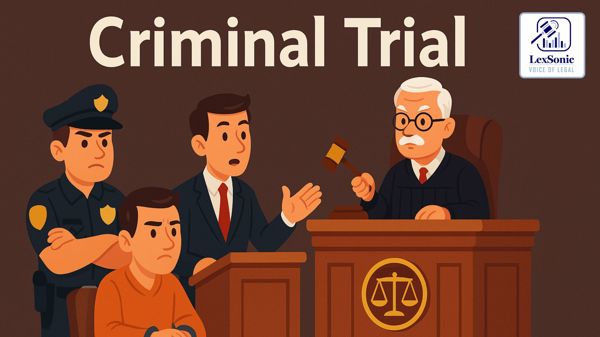An Examination of the Legal Implications of Cross-Examination Rights in Indian Criminal Proceedings.
02 September 2024
Criminal Trial >> Criminal Law | Evidence >> Criminal Law
In a significant ruling of Neha Begum & Others v/s The State Of Assam & Another, the Gauhati High Court addressed the complexities surrounding the right to cross-examine witnesses in criminal trials. This discussion revolves around a special leave petition stemming from the rejection of a request to further cross-examine prosecution witnesses in a case concerning serious charges under Section 302 of the Indian Penal Code (IPC). The ruling highlights essential aspects of criminal procedure and the interpretation of Section 311 of the Code of Criminal Procedure (CrPC).
Case Background:
The petitioners, accused of murder, faced trial in the Sessions Court of Dibrugarh. During the trial, they filed an application under Section 231(2) read with Section 311 CrPC, seeking to recall certain prosecution witnesses for further cross-examination. This request was ultimately denied by the trial court, leading to an appeal that was dismissed by the High Court.

Arguments Presented:
The petitioners' counsel argued that the lower courts misunderstood the nature of their application. They contended that the rejection of their request for further cross-examination was premised on an erroneous belief that such a request could only arise after a re-examination of witnesses by the prosecution—a scenario that had not occurred. However, the High Court maintained that the petitioners' claims lacked substantial grounding. The court concluded that the request was vague and did not sufficiently demonstrate that further cross-examination was necessary for a just decision.
Legal Framework:
Section 311 of the CrPC provides courts with the discretion to summon, examine, or recall witnesses whose testimony is deemed essential for the case's resolution. The provisions encompass two critical components:
- The court's discretionary power to call or recall witnesses.
- The obligation to do so if such testimony is crucial for a just determination of the case.
The Supreme Court’s judgment in Rajaram Prasad Yadav vs. State of Bihar outlines guiding principles for invoking this power, emphasizing the need for new evidence to support a just decision, rather than simply addressing gaps in the prosecution’s case.
Court’s Analysis:
Upon reviewing the petitioners' application, the High Court noted that the defense did not present compelling reasons for the recall of witnesses. The assertion that prior legal representation was inadequate did not suffice as a legitimate basis for further cross-examination. The court underscored that the mere existence of dissatisfaction with previous legal counsel's performance could not justify invoking Section 311 unless it directly related to preventing serious prejudice to the accused. The court stressed that requests under Section 311 should not be seen as opportunities to fill gaps in the defense’s case. It also affirmed that the prosecution’s case should not be bolstered at the expense of the accused's right to a fair trial.
Conclusion:
The Gauhati High Court's ruling underscores the delicate balance between a fair trial and procedural rights in criminal law. It reaffirms that while the court possesses significant discretion in managing witness examinations, this power must be exercised judiciously, ensuring that the rights of the accused are upheld without allowing for misuse in the form of unwarranted delays or attempts to rectify previous inadequacies in legal representation. This case serves as a critical reminder of the importance of clarity and specificity in legal applications, reinforcing that a robust legal framework exists to protect the integrity of the judicial process while ensuring that justice is effectively served.
Indian Penal Code, 1860 Code of Criminal Procedure, 1973 Indian Evidence Act, 1872
